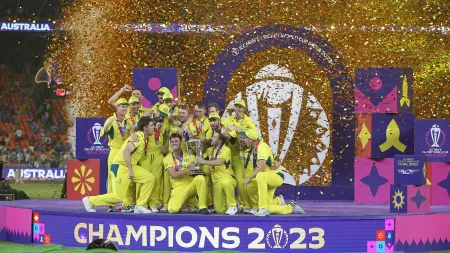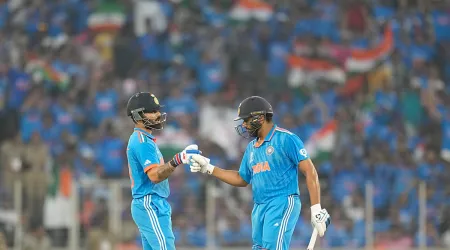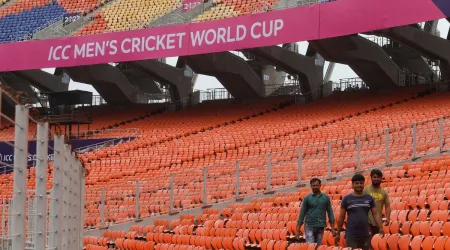- India
- International
Harsha Bhogle’s Column: Home boards need to pay if their negligence leads to loss of play
I believe that, except in unforeseen conditions, you always start on time and the losses should be borne by whoever is responsible for the delay.
 The US has long been a target, certainly ever since cricket matches were played just across the Niagara in the late nineties.
The US has long been a target, certainly ever since cricket matches were played just across the Niagara in the late nineties.
I have always been a supporter of taking cricket outside its traditional confines and was an interested observer when these two games in the United States were announced; even though I was a bit sceptical of the time frame. The US has long been a target, certainly ever since cricket matches were played just across the Niagara in the late nineties. But it was clear then, and it was reinforced in Florida, that even though you might stage matches in distant lands, the real spectators are back home. It was a beginning but we are still far away from the moneyed tours that European football teams undertake in the Far East.
And because the more valued audience is at home in India, rather than that which regards India as home but lives in America, it makes the start of the second game a very interesting debate. Remember the game was to start at a specified time but couldn’t because there was a problem with uplinking the pictures to audiences elsewhere. Within that sentence lies the problem that modern commercial sport must grapple with. Who is the primary audience and therefore, who is the game being played for?
The real question in Florida, even assuming you knew when it was going to rain, which is open to speculation, was who the more valued audience was. The commercial implication of the loss of forty minutes, about a quarter of the game, would have been significant for the television network even if they had tried harder to squeeze the lost advertising in later. (Before you outrage, remember it is the advertising that enables us to see the games at the price at which we do). So, in effect, by delaying the start of the game, the message to the paying public in Florida was: yes, we need you but we need to protect our primary market first.
The other debate, and one which will inevitably be stirred, is: who controls the start of play in an ICC sanctioned and recognised tournament when the conditions for play are fine. Traditionally, once the ground staff hands over the ground to the umpires, they are the sole judges of when to start or suspend play. Therefore, what is the gravity needed in a situation to allow them to suspend the start of play? Like judges, I suspect the umpires have to contend with a combination of the practical and the mandatory. And if they side with the practical, they must be aware of the extent of liberty they can allow. What if, for example, the uplinking had needed another twenty minutes? At what point would they be mandated to start the game? I don’t think we have heard the last of this, though I believe there must be rules laid down. I don’t know the law, for example, but can a spectator, in the land of exotic law suits dare I say, argue that he paid to witness a result and he was denied it?
I believe that, except in unforeseen conditions, you always start on time and the losses should be borne by whoever is responsible for the delay. If, for example, the light towers go off and play has to be delayed by an hour, in a situation where it cannot be made up, there is a deduction in the television rights that the staging authority gets. There can be other situations but there has to be an awareness that there are large amounts of money involved and one party cannot always be saddled with the bills.

That was the case in two Test matches recently in the West Indies and in South Africa. Where nature takes its course, and it is beyond everyone’s control, you look upon it as an unforeseen business expense and everyone budgets for it. But where cricket should be played, and isn’t because the host association isn’t responsible enough, it is unfair to expect television networks, already strained to recover high costs of rights, to be left holding the baby. In Port of Spain, for example, the West Indies Cricket Board accepted money from their television partner in return for the right to monetise the television coverage. If their negligence leads to loss of play, in effect, they get paid in spite of their ineptitude because the television rights holder isn’t refunded anything. I can promise you that if cricket boards are made to pay for their negligence through lower rights revenue, they will ensure that the situation we saw last week in the West Indies doesn’t recur.
Get latest updates on IPL 2024 from IPL Points Table to Teams, Schedule, Most Runs and Most Wickets along with live score updates for all matches. Also get Sports news and more cricket updates.











































